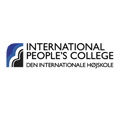Career Colleges and Vocational Schools in Denmark

DNS - The Necessary Teacher Training College
Ulfborg, Denmark
DNS stands for “Necessary Teacher Training College” which was established in 1972. The name represents the aim of the institute located in Tvind, Ulfborg, Denmark which is to provide quality education to under privileged areas as it is necessary to foster a healthy society. DNS is an international school catering students from all over Europe. English is the medium of instruction but Danish and other languages are taught as well. The teacher novice lives within the proximity of the school. The teaching focus is on one subject at a time. The routine at DNS is very unique as there are... See full description.

International People's College
Helsingør, Denmark
The International People´s College is an international school in Denmark, founded in 1921. Since it first opened its doors, the college has been aiming to bring together students and teachers from all over the world – enhancing and promoting the vision for international and intercultural understanding. The International People´s College offers two "Long Courses" – a Spring Term of 24 weeks and an Autumn Term of 18 weeks. An average of 60 -70 students from more than 30 different countries enroll on these. Subject areas offered include global perspectives, regional perspectives,... See full description.
Career Colleges and Vocational Schools in Denmark by City:
HelsingørHorsensUlfborgAbout Career Colleges and Vocational Schools in Denmark
The principal aim of the Danish vocational education and training programs is to equip youth with the adequate skills-set necessary to increase their employability quotient, as well as to map the supply of skilled labor with needs of the labor market. Not only do these professional programs provide an opportunity for further education, they also give participants valuable exposure in innovation and a taste of globalization.
Vocational schools or the “erhvervsskoler” are by and large, state funded; and operate as either technical schools (tekniske skoler) or business colleges (handelsskoler). The teaching methodology at these professional institutes is a unique combination of academics and apprenticeship or ‘on-the-job training’; it is intensive as well as focused at developing the required technical skills in students.
Students pursuing vocational training in Denmark can choose from the following broad streams: 1) Building, 2) Crafts and technique, 3) From earth to table (hotel, cooking, foods, and agriculture), 4) Mechanics, transport and logistics, 5) Commercial area (trade, office, and finance), 6) Service, 7) Technology and communication, and 8) Vocational elementary course.
Moreover, for candidates interested in working at social and health institutions such as nursing homes, the Basic Social and Health Education (Social- og Sundhedsuddannelse or SoSu) is also available.
The duration of these vocational training courses in Denmark is between two to five years post completion of The "Folkeskole", the free public or private school system, that comprehensively caters to the seven to 16 or 17 year olds through two stages of grade based education. A remarkable feature of the Danish education system is that, post completion of Folkeskole, an astonishing 82 percentage of students continue with further higher education in one form or the other.
The basic difference between the traditional academic secondary education and the vocational secondary education in Denmark is the latter’s emphasis on being job ready. Nevertheless, there are opportunities to continue further education post completion of vocational education through a number of courses offered at various universities.
At a vocational school or a career college in Denmark, although the theoretical teaching primarily occurs at the institute, the practical aspects of training are arranged both in the college as well as the place of apprenticeship. Moreover, the vocational colleges are well equipped to organize teaching in a holistic manner.
During the course of his/her education at a vocational school in Denmark, a student typically spends approximately 30-50 percent of the time at college, while the remaining 50-70 percent is spent at the place of work. Most students commence their vocational education with a basic program at a college, post the completion of their basic school education; however, individuals with prior work experience can also pursue such courses.
In Denmark, there are approximately 117 institutions offering basic vocationally oriented education programs. 97 of these are technical colleges, career colleges, agricultural colleges or combination colleges. Additionally, 20 colleges offer social and health care training programs. About 56,500 students commence a full-time vocational education every year, whereas the total number of students in vocational education and training programs is approximately 130,000 at any given time.
As a result of the Danish education system, which offers all Danish citizens equal access to education and educational support, regardless of their social or financial situation, Denmark ranks among the world’s highest in terms of income equality.
Vocational schools or the “erhvervsskoler” are by and large, state funded; and operate as either technical schools (tekniske skoler) or business colleges (handelsskoler). The teaching methodology at these professional institutes is a unique combination of academics and apprenticeship or ‘on-the-job training’; it is intensive as well as focused at developing the required technical skills in students.
Students pursuing vocational training in Denmark can choose from the following broad streams: 1) Building, 2) Crafts and technique, 3) From earth to table (hotel, cooking, foods, and agriculture), 4) Mechanics, transport and logistics, 5) Commercial area (trade, office, and finance), 6) Service, 7) Technology and communication, and 8) Vocational elementary course.
Moreover, for candidates interested in working at social and health institutions such as nursing homes, the Basic Social and Health Education (Social- og Sundhedsuddannelse or SoSu) is also available.
The duration of these vocational training courses in Denmark is between two to five years post completion of The "Folkeskole", the free public or private school system, that comprehensively caters to the seven to 16 or 17 year olds through two stages of grade based education. A remarkable feature of the Danish education system is that, post completion of Folkeskole, an astonishing 82 percentage of students continue with further higher education in one form or the other.
The basic difference between the traditional academic secondary education and the vocational secondary education in Denmark is the latter’s emphasis on being job ready. Nevertheless, there are opportunities to continue further education post completion of vocational education through a number of courses offered at various universities.
At a vocational school or a career college in Denmark, although the theoretical teaching primarily occurs at the institute, the practical aspects of training are arranged both in the college as well as the place of apprenticeship. Moreover, the vocational colleges are well equipped to organize teaching in a holistic manner.
During the course of his/her education at a vocational school in Denmark, a student typically spends approximately 30-50 percent of the time at college, while the remaining 50-70 percent is spent at the place of work. Most students commence their vocational education with a basic program at a college, post the completion of their basic school education; however, individuals with prior work experience can also pursue such courses.
In Denmark, there are approximately 117 institutions offering basic vocationally oriented education programs. 97 of these are technical colleges, career colleges, agricultural colleges or combination colleges. Additionally, 20 colleges offer social and health care training programs. About 56,500 students commence a full-time vocational education every year, whereas the total number of students in vocational education and training programs is approximately 130,000 at any given time.
As a result of the Danish education system, which offers all Danish citizens equal access to education and educational support, regardless of their social or financial situation, Denmark ranks among the world’s highest in terms of income equality.

